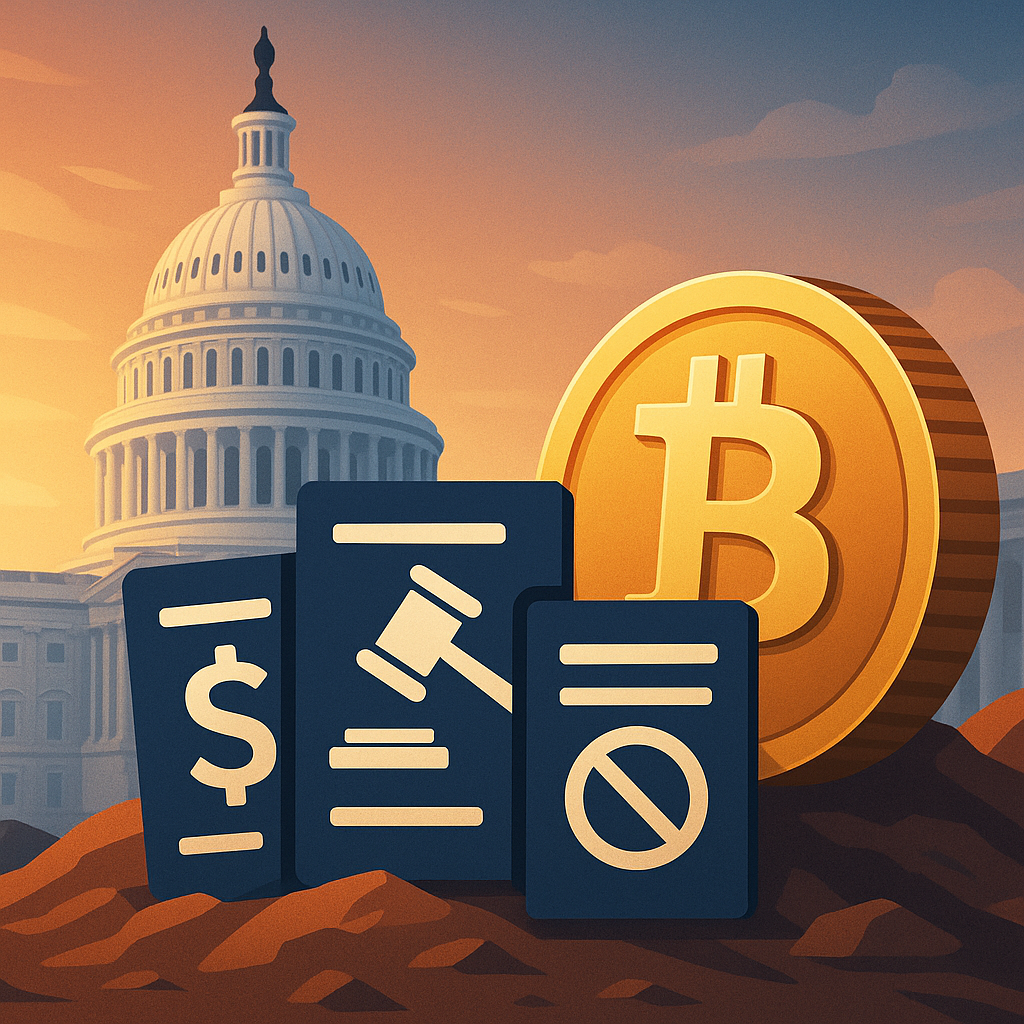After years of legal ambiguity and regulatory tension, the U.S. Congress has taken a historic step toward establishing a clear framework for the crypto industry. On July 14, the House of Representatives launched its highly anticipated “Crypto Week” with hearings on three landmark bipartisan bills: the GENIUS Act, the CLARITY Act, and the Anti-CBDC Surveillance State Act.
These bills aim to provide legal certainty for stablecoins, clearly define the regulatory boundaries between the SEC and CFTC, and prohibit the Federal Reserve from issuing a retail Central Bank Digital Currency (CBDC). As lawmakers finally engage in constructive dialogue around crypto regulation, investors are watching closely—with markets responding swiftly.
Legislative Clarity Fuels Market Confidence
The three bills at the center of Crypto Week each address long-standing gaps in U.S. digital asset policy:
- The GENIUS Act (Guarding Entrepreneurship and Nurturing Innovation in U.S. Stablecoins): Establishes oversight and issuance frameworks for stablecoins, allowing regulated entities to participate while requiring reserve backing and transparency.
- The CLARITY Act: Defines the jurisdiction of digital assets, assigning commodities oversight to the CFTC and securities oversight to the SEC, based on specific characteristics.
- The Anti-CBDC Surveillance State Act: Seeks to ban the issuance of a retail-focused U.S. CBDC, citing privacy and civil liberty concerns.
According to Business Insider, these bills have bipartisan momentum, signaling that crypto regulation is no longer a partisan issue but an economic necessity. The Wall Street Journal reported that lawmakers aim to “create room for innovation while protecting consumers,” a message that resonated with both financial institutions and retail investors.
Why This Matters for Investors
The absence of a cohesive regulatory framework has historically been a barrier to institutional participation in crypto. Funds, banks, and asset managers have been hesitant to enter the space due to fears of regulatory retaliation or unclear classifications of assets.
But that’s now shifting.
Increased clarity on stablecoin compliance, asset classification, and digital privacy rights would reduce risk premiums and legal uncertainty for large players. According to a CoinDesk analysis, more than $30 billion in institutional capital could be unlocked by the regulatory certainty these bills would provide.
“Markets hate ambiguity. These bills could finally give us a regulatory north star,” said Kristin Smith, CEO of the Blockchain Association, during testimony on Capitol Hill.
Institutional Capital Already Reacting
Markets appear to be pricing in the potential for a more defined regulatory future. In the days leading up to Crypto Week:
- Bitcoin surged past $123,000, an all-time high
- Spot Bitcoin ETFs saw record inflows of $1.18 billion, per MarketWatch
- Stocks like Coinbase ($COIN), Robinhood ($HOOD), and Riot Platforms ($RIOT) rallied as investors bet on long-term structural benefits for crypto-related equities
Fintech and payment companies such as Block ($SQ) and PayPal ($PYPL) may also benefit from legal support for stablecoin infrastructure and clearer operational guidelines.
Future Trends to Watch
1. Stablecoin Regulation as the On-Ramp to Digital Finance
If the GENIUS Act passes, expect rapid growth in regulated USD-pegged stablecoins like USDC, enabling faster settlements, on-chain commerce, and programmable finance applications.
2. Clarity for Tokens and Exchanges
The CLARITY Act could reduce litigation risk for exchanges and developers by defining which digital assets are securities and which are commodities. This may unlock capital for Layer 1 and DeFi platforms operating in the gray zone.
3. Pushback Against Government-Controlled Digital Money
The Anti-CBDC bill shows growing political concern about surveillance risks tied to digital dollars. This could bolster decentralized stablecoins and privacy-focused networks.
Key Investment Insight
Crypto Week represents more than a legislative headline—it’s a potential inflection point for the entire digital asset market. If passed, these bills could bring legal certainty to stablecoins, exchanges, and developers, opening the door for massive institutional participation and reducing compliance headwinds.
Investors should monitor the outcomes of the hearings and consider exposure to crypto ETFs, infrastructure stocks, or payment platforms positioned to thrive in a regulated environment.
For smart, daily coverage of how political decisions impact your portfolio, stay informed with MoneyNews.Today—your source for trusted, actionable investor insights.





